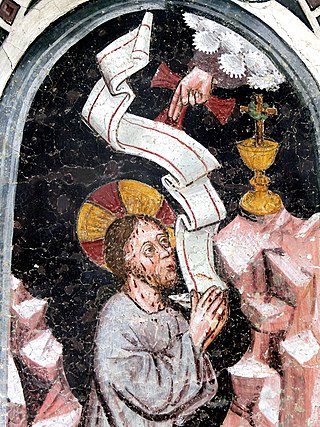Related Research Articles

Carl Ransom Rogers was an American psychologist who was one of the founders of humanistic psychology and was known especially for his person-centered psychotherapy. Rogers is widely considered one of the founding fathers of psychotherapy research and was honored for his pioneering research with the Award for Distinguished Scientific Contributions by the American Psychological Association (APA) in 1956.
Psychotherapy is the use of psychological methods, particularly when based on regular personal interaction, to help a person change behavior, increase happiness, and overcome problems. Psychotherapy aims to improve an individual's well-being and mental health, to resolve or mitigate troublesome behaviors, beliefs, compulsions, thoughts, or emotions, and to improve relationships and social skills. Numerous types of psychotherapy have been designed either for individual adults, families, or children and adolescents. Certain types of psychotherapy are considered evidence-based for treating some diagnosed mental disorders; other types have been criticized as pseudoscience.

The Jesus Prayer, also known as The Prayer, is a short formulaic prayer, esteemed and advocated especially in Eastern Christianity and Catholicism:
Lord Jesus Christ, Son of God, have mercy on me, a sinner.

A spiritual gift or charism is an extraordinary power given by the Holy Spirit. These are believed by followers to be supernatural graces that individual Christians need to fulfill the mission of the Church. In the narrowest sense, it is a theological term for the extraordinary graces given to individual Christians for the good of others and is distinguished from the graces given for personal sanctification, such as the Seven Gifts of the Holy Spirit and the fruit of the Holy Spirit.
Psychosynthesis is an approach to psychology that expands the boundaries of the field by identifying a deeper center of identity, which is the postulate of the Self. It considers each individual unique in terms of purpose in life, and places value on the exploration of human potential. The approach combines spiritual development with psychological healing by including the life journey of an individual or their unique path to self-realization.
Clinical psychology is an integration of human science, behavioral science, theory, and clinical knowledge for the purpose of understanding, preventing, and relieving psychologically-based distress or dysfunction and to promote subjective well-being and personal development. Central to its practice are psychological assessment, clinical formulation, and psychotherapy, although clinical psychologists also engage in research, teaching, consultation, forensic testimony, and program development and administration. In many countries, clinical psychology is a regulated mental health profession.
Psychology of religion consists of the application of psychological methods and interpretive frameworks to the diverse contents of religious traditions as well as to both religious and irreligious individuals. The various methods and frameworks can be summarized according to the classic distinction between the natural-scientific and human-scientific approaches. The first cluster amounts to objective, quantitative, and preferably experimental procedures for testing hypotheses about causal connections among the objects of one's study. In contrast, the human-scientific approach accesses the human world of experience using qualitative, phenomenological, and interpretive methods. This approach aims to discern meaningful, rather than causal, connections among the phenomena one seeks to understand.
Process-oriented psychology, also called process work, is a depth psychology theory and set of techniques developed by Arnold Mindell and associated with transpersonal psychology, somatic psychology and post-Jungian psychology. Process oriented psychology has been applied in contexts including individual therapy and working with groups and organisations. It is known for extending dream analysis to body experiences and for applying psychology to world issues including socioeconomic disparities, diversity issues, social conflict and leadership.

In a religious context, the practice of contemplation seeks a direct awareness of the divine which transcends the intellect, often in accordance with religious practices such as meditation or prayer.
Psychodynamic psychotherapy and psychoanalytic psychotherapy are two categories of psychological therapies. Their main purpose is revealing the unconscious content of a client's psyche in an effort to alleviate psychic tension, which is inner conflict within the mind that was created in a situation of extreme stress or emotional hardship, often in the state of distress. The terms "psychoanalytic psychotherapy" and "psychodynamic psychotherapy" are often used interchangeably, but a distinction can be made in practice: though psychodynamic psychotherapy largely relies on psychoanalytical theory, it employs substantially shorter treatment periods than traditional psychoanalytical therapies. Psychodynamic psychotherapy is evidence-based; the effectiveness of psychoanalysis and its relationship to facts is disputed.

Sophia is a central idea in Hellenistic philosophy and religion, Platonism, Gnosticism and Christian theology. Originally carrying a meaning of "cleverness, skill", the later meaning of the term, close to the meaning of phronesis, was significantly shaped by the term philosophía as used by Plato.
Depth psychology refers to the practice and research of the science of the unconscious, covering both psychoanalysis and psychology. It is also defined as the psychological theory that explores the relationship between the conscious and the unconscious, as well as the patterns and dynamics of motivation and the mind. The theories of Sigmund Freud, Carl Gustav Jung, and Alfred Adler are all considered its foundations.
Biblical counseling is distinct from secular counseling. According to the International Association of Biblical Counselors, Biblical counseling "seeks to carefully discover those areas in which a Christian may be disobedient to the principles and commands of Scripture and to help him learn how to lovingly submit to God's will." Biblical Counselors, therefore, approach psychology through the lens of the Bible. They see the Bible as the source of all truth.
Eastern Orthodox theology is the theology particular to the Eastern Orthodox Church. It is characterized by monotheistic Trinitarianism, belief in the Incarnation of the divine Logos or only-begotten Son of God, cataphatic theology with apophatic theology, a hermeneutic defined by a Sacred Tradition, a catholic ecclesiology, a theology of the person, and a principally recapitulative and therapeutic soteriology.
Pastoral care, or cure of souls, refers to emotional, social and spiritual support. The term is considered inclusive of distinctly religious and non-religious forms of support, including atheist and religious communities. It is also an important form of support found in many spiritual and religious traditions.

Buddhism includes an analysis of human psychology, emotion, cognition, behavior and motivation along with therapeutic practices. Buddhist psychology is embedded within the greater Buddhist ethical and philosophical system, and its psychological terminology is colored by ethical overtones. Buddhist psychology has two therapeutic goals: the healthy and virtuous life of a householder and the ultimate goal of nirvana, the total cessation of dissatisfaction and suffering (dukkha).

The Catholic Church and the Eastern Orthodox Church have been in a state of official schism from one another since the East–West Schism of 1054. This schism was caused by historical and language differences, and the ensuing theological differences between the Western and Eastern churches.
Thomas G. Plante is the Augustin Cardinal Bea, S.J. University Professor of psychology on the faculty of Santa Clara University and adjunct clinical professor of psychiatry and behavioral sciences at Stanford University School of Medicine. His ideas have been covered in Time Magazine and other news media with regard to sexual abuse by Roman Catholic priests, a focus of some of his research and clinical practice. He has also conducted research on exercise psychology, and on the health effects of spiritual and religious practice.

Mysticism is popularly known as becoming one with God or the Absolute, but may refer to any kind of ecstasy or altered state of consciousness which is given a religious or spiritual meaning. It may also refer to the attainment of insight in ultimate or hidden truths, and to human transformation supported by various practices and experiences.
David Gordon Benner is a Canadian depth psychologist, author and wisdom teacher.
References
- 1 2 Rogers, F. Gregory (December 22, 2002). "Spiritual direction in the Orthodox Christian tradition". Journal of Psychology and Theology . 30 (4): 276–289. doi:10.1177/009164710203000403. S2CID 141121838 . Retrieved 2012-02-23.
- ↑ Lapin, Alexander (April–July 2007). "What is "psychotherapy" in context of the Orthodox Christianity?" (PDF). World Cultural Psychiatry Research Review. 2 (2/3): 83. ISSN 1932-6270 . Retrieved 2012-02-23.
- ↑ Johnson, Christopher D. L. (2010). The Globalization of Hesychasm and the Jesus Prayer: Contesting Contemplation. Continuum International Publishing Group. p. 170. ISBN 978-1-4411-2547-7 . Retrieved 2012-02-23.
- ↑ Archbishop Chrysostomos (2006). A Guide to Orthodox Psychotherapy: The Science, Theology and Spiritual Practice Behind it and Its Clinical Applications. University Press of America. ISBN 978-0-7618-3602-5.[ page needed ]
- ↑ Nelson, James M (2009). Psychology, Religion, and Spirituality . p. 52. ISBN 978-0-387-87572-9.
- ↑ http://www.uocc.ca/en-ca/faith/articles/faithandspirituality/psychotherapy.asp Archived 2009-01-30 at the Wayback Machine Ukrainian Orthodox Church Website, Article "Orthodox Psychotherapy"
- ↑ "The Orthodox Vision", Official newsletter of the Orthodox Church in America (OCA), Diocese of the West, Volume 9, Number 2, p. 1, Winter 2003